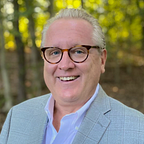The economics of becoming a keynote speaker
Some time in 2016, my lines crossed. I began making more money as a keynote speaker than I did as a marketing strategy consultant. (I have 20 sources of income but those two are the most important!)
The pull to host me as a keynote speaker has continued to climb over the years so I am becoming more serious about focusing on this as a major part of my business. It’s also caused me to sharpen my pencil and take a look at the economics being a keynote speaker.
If you’ve ever thought about becoming a professional speaker this is probably vital information for you, so let’s dive into this today.
The keynote speaker
First, what do I mean by “keynote” speaker?
A keynote speaker’s main purpose is to set the tone for the theme of an event. Selecting a keynote speaker who is well-known for his or her expertise in a field, or who has wide name recognition due to other accomplishments, raises enthusiasm among prospective attendees for an event.
The high-profile keynote speaking professional may lead off a conference or end it with a bang. Normally for a multi-day event there will be a keynote speaker for each day, and sometimes even a morning and evening keynote.
